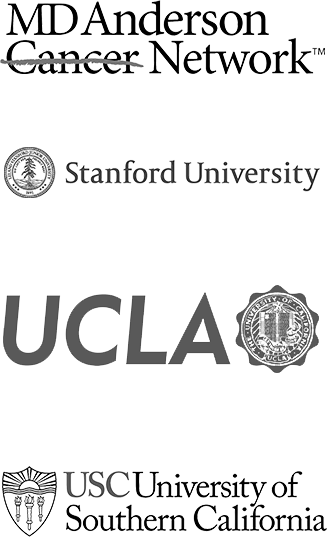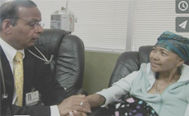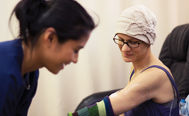Lymphadenopathy Symptom
Swollen lymph nodes (lymphadenopathy) are a symptom that occur when there’s an infection in the body. Most people might associate lymphoma with lymphadenopathy, but having the symptom shouldn’t initially cause immediate concern. Before jumping to the conclusion that the swelling indicates cancer, it’s important to consult a specialist to confirm a diagnosis.
Typically, you’ll first consult with your doctor who’ll give you a complete examination to evaluate the swollen lymph nodes. If your doctor cannot confirm a cause, then you’ll be referred to a specialist. Your doctor might referyou to the specialists at the Cancer Center of Southern California who are respected in the medical community for their expertise in cancer, including lymphoma.
What Do Lymphadenopathy Symptoms Signify?
Some of the symptoms associated with lymphoma are general and could indicate another disease. By seeing a specialist, you’ll be examined by a physician who is knowledgeable about cancer and familiar with the disease’s subtleties.
When you consult with specialists, whether you meet with the physicians at the Cancer Center of Southern California or another expert, a doctor will be able to distinguish whether the swollen glands signify cancer or another disease.
Other conditions that have similar symptoms include:
- Hepatitis
- Leukemia
- Mononucleosis
- Rheumatoid Arthritis
- Neuroblastoma
If additional information is needed for an accurate diagnosis, the doctor will most likely recommend a CT scan, MRI, and blood tests before proceeding with treatment.
Treatment for Lymphadenopathy Symptoms
Once your doctor identifies the cause of the disorder, then treatment for your condition can proceed. There are several treatment options depending on the illness:
- Antibiotics – mononucleosis
- Medications – neuroblastoma and leukemia
- Symptomatic treatment – rheumatoid arthritis
Some diseases such as cancer may require additional treatment other than medication or symptomatic treatment. Often radiation therapy or chemotherapy are recommended. Some disorders, such as rheumatoid arthritis are not treatable themselves and only the symptoms are managed.
Contact Lymphoma Specialists
If you suspect that you have lymphoma, you will want to discuss treatment with oncologists who specialize in cancer care. The doctors at the Cancer Center are renowned for their expertise in medically advanced solutions through novel drug therapies, clinical trials, and extensive experience. Call today at 310-552-9999 to schedule a consultation.
Next, read about lymphoma treatment


